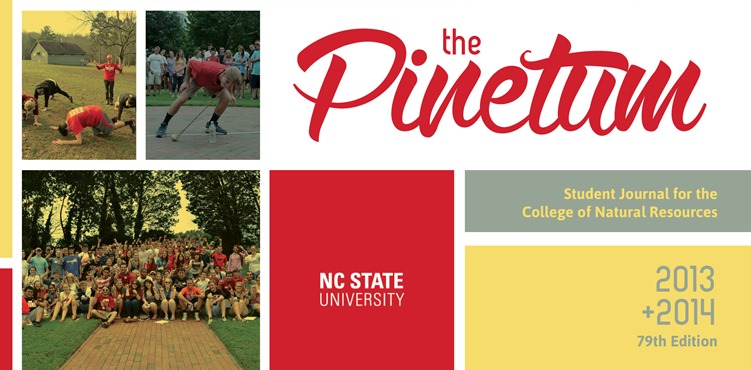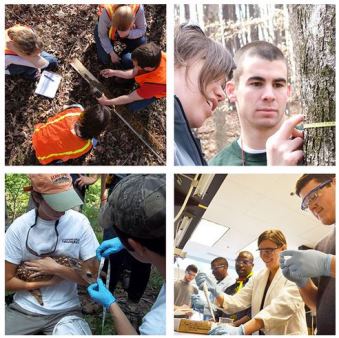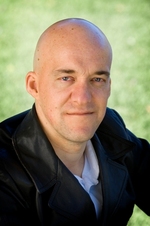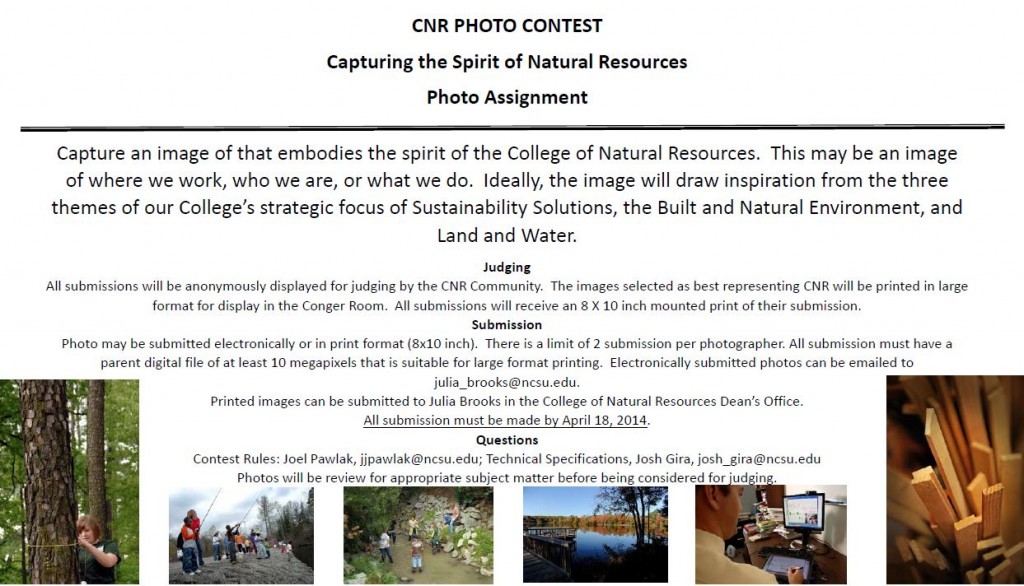On April 23, 2014 at 7:45pm, NC State University will turn the campus belltower red in honor of Dr. George Hess.
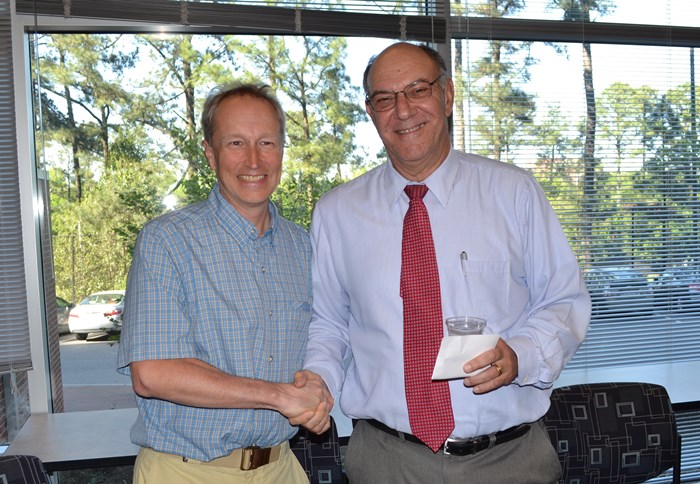
Department Head Barry Goldfarb (r) congratulates Dr. George Hess (l) on his award.
Hess, an Alumni Distinguished Undergraduate Professor of Conservation and Ecology in the Department of Forestry and Environmental Resources is North Carolina State University’s recipient of the 2014 Board of Governors Award for Excellence in Teaching.
About the Award
In 1993 the Board of Governors of the University of North Carolina system reaffirmed that teaching is the primary responsibility of each of the 17 constituent institutions of the University. To underscore the importance of teaching and to encourage, identify, recognize, reward, and support good teaching within the University, the Board created annual systemwide teaching awards with monetary stipends which are designated “Board of Governors Awards for Excellence in Teaching.”
The College of Natural Resources is very proud that a member of our faculty has received this highly prestigious award.
About Dr. George Hess
Holding research and teaching positions at North Carolina State University since 1989, Dr. Hess joined the Department of Forestry and Environmental Resources in 1996.
Studying conservation planning for wildlife in suburbanizing areas and broader issues of open space conservation, Dr. Hess’s research has evolved from a strictly science-based focus to a collaborative combination of science and policy inquiry. Self-described as “…an unrepentant addict, craving the controlled chaos of engaged learning,” Dr. Hess challenges students to independently solve problems on projects in a collaborative environment using technical, communication, critical thinking, and organizational skills. He works to combine his teaching, research, and service activities at the undergraduate and graduate levels, creating exciting learning opportunities for his students and himself alike.
Dr. Hess’s activities comprise three major themes and are integrated across teaching, research, and engagement: participation in the scholarship of teaching and learning that supports the active engagement of faculty and students with community partners to address regional conservation challenges; improvement of the breadth and quality of ecologically-based information available to land use planners; and development of approaches to incorporating scientific findings about conservation into local planning activities by engaging with community partners.
As a teacher, Dr. Hess focuses on finding and developing approaches such as inquiry-guided learning, service-learning, and collaborative research that engage students in topical problems with the organizations and people who are working to solve them. Using these techniques, students respond positively to authentic learning environments.
His students have provided written support of his successful teaching methods:
“Dr. Hess introduces a realistic model of problems and solutions….”
“His classroom is a forum of active thought where students think critically to solve qualitative and quantitative problems….”
“Everything is interactive, hands-on, and designed so that students leave with a level of understanding and confidence…. ”
“… his instruction methods removed the barriers between class work and ‘real-world’ work.”
Civically active, Dr. Hess has served on the Board of Directors for Triangle Land Conservancy, the Town of Knightdale’s Land Use Review Board, and several committees focusing on land use and planning issues.
Dr. Gary Blank, Director of Undergraduate Programs in the Department of Forestry and Environmental Resources at North Carolina State University, writes in support of Dr. Hess’s outreach efforts, “Dr. Hess is instrumental in projects like WakeNature Preserve Partnership… he is the person who asserts the pedagogical perspective amid the sometimes too prevalent focus on just getting the ‘job’ done.”
Dr. Hess earned a BA in Biology from Columbia College (1978), a BS in Computer Science from Columbia University School of Engineering and Applied Science (1979), a MS in Computer Science from the Stevens Institute of Technology (1981) and a PhD in Biomathematics and Ecology from North Carolina State University (1994).
Visit Dr. Hess’s Website>>
Dr. Hess will be honored at NC State’s Spring commencement ceremony by a member of the Board of Governors, will receive a $12,500 stipend and a bronze medallion, and lifetime bragging rights.
Congratulations on this well-deserved honor, Dr. Hess!


